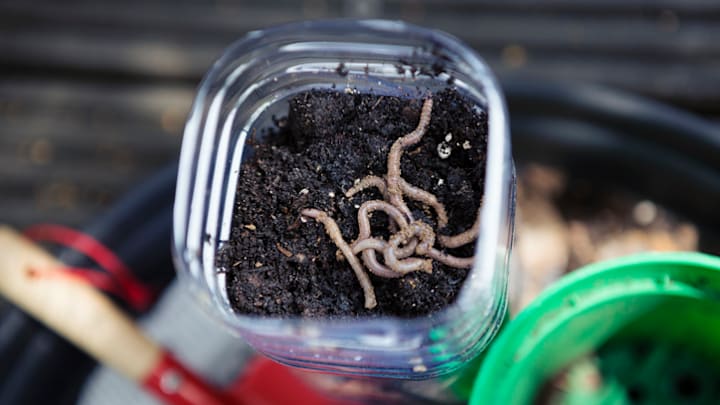Metaphorically speaking, to open a can of worms is to examine or attempt to solve some problem, only to inadvertently complicate it and create even more trouble. Literally speaking, opening a can of worms, as most fishermen can attest, can also mean more trouble than you bargained for. No surprise, then, that the idiom was inspired by actual live worms.
The Oxford English Dictionary suggests that the phrase’s debut in print occurred in a 1962 Times article. Various dictionaries and historians of slang and idioms say that the phrase was born in earlier the U.S.; World Wide Words reports the appearance of a can of worms in a Michigan daily newspaper in 1951.
Sources agree that can of worms references an actual conveyance for oligochaetes. In the days before plastic and styrofoam containers were ubiquitous, bait shops often sold live bait in metal cans with handles and lids. One of the most popular types of live bait was (and is)Canadian night crawlers—a favorite of several kinds of freshwater fish, including walleye, catfish, and bass—that had to be collected by hand from pastures and fields overnight.
Worms aren’t the only nibbles employed as live bait, though. Fishers use a host of creepy-crawlies, such as leeches, insect grubs, minnows, and crawfish, to snare different kinds of fish.
The great thing about live bait is that it’s alive, so it wriggles on the hook and tempts fish with its movement. The bad thing about live bait is also that it’s alive, and leaving the lid of the container loose or off is a great way to lose your bait. Given the opportunity to exit, worms will often escape or just generally make it difficult to get them all back in the can and replace the lid. Once you’ve opened a can of them, you’ve got a problem on your hands.
A version of this story was published in 2012; it has been updated for 2024.
